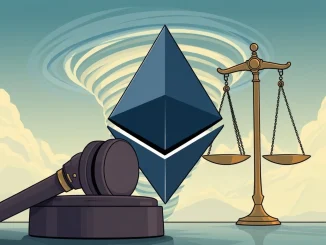
The world of cryptocurrency often thrives on innovation and rapid change, but the foundation of a healthy market rests on trust and clear processes. In South Korea, a major player in the global crypto market, concerns are rising about how crypto exchanges operate, specifically regarding their token listing and delisting decisions.
The Problem: Opaque Token Listing and Delisting Rules
According to an exclusive report by NewsPim, South Korea crypto exchanges have been running their internal listing and delisting review committees without established clear standards or public transparency. This means the criteria used to decide which tokens are added or removed from trading platforms haven’t been easily accessible or understood by the public, including investors and token issuers.
This lack of clarity around token listing and delisting rules poses significant challenges:
- Investor Uncertainty: Investors don’t know the specific risks associated with a token potentially being delisted, which can lead to sudden, unexpected losses.
- Fairness Concerns: Token issuers might feel decisions are arbitrary or unfair without a formal, transparent process.
- Market Integrity: Opaque processes can potentially be exploited or lead to perceptions of bias, undermining trust in the market as a whole.
DAXA Steps In, But Is It Enough?
The Digital Asset eXchange Alliance (DAXA), an association representing the major crypto exchanges in South Korea, has reportedly taken steps to address this issue. They have amended their rules to strengthen oversight over these processes.
However, the report points out a critical detail: the revised provisions are scheduled to take effect starting June 1. This leaves a window where the previous, less transparent practices were still in place, and the effectiveness of the new rules remains to be seen.
Potential Fallout: Legal Challenges and Investor Protection
The situation has drawn warnings from within the industry. Insiders suggest that the lack of a formal, transparent review process could open the door to legal disputes. Token issuers who feel wronged by a delisting decision might challenge the process in court, potentially leading to complex legal battles for the South Korea crypto exchanges.
Experts in the field are emphasizing the urgent need for change. They argue that protecting investors must be the top priority. To achieve this, exchanges need to tackle fundamental issues like:
- Making decision-making procedures clear and understandable.
- Being willing to disclose key information regarding listing and delisting criteria and processes.
Without these steps, even amended rules might not fully restore confidence or prevent future problems related to token listing and delisting rules.
What This Means for the South Korea Crypto Market
The focus on transparency in listing and delisting is a crucial development for the maturity and safety of the South Korea crypto market. While DAXA‘s rule changes are a positive sign, their real impact will depend on implementation and the commitment of individual crypto exchanges to adopt truly transparent practices.
Clearer delisting rules and token listing standards are not just about compliance; they are about building a more trustworthy environment for everyone involved – from the largest institutions to individual retail investors.
Summary: A Call for Clarity
The recent report highlighting the lack of clear standards and transparency in the listing and delisting processes of South Korea crypto exchanges underscores a significant challenge. While DAXA is introducing rule changes effective June 1, the industry and experts stress that genuine transparency, disclosure of information, and formal procedures are essential to protect investors and prevent potential legal conflicts. The future health of the South Korea crypto market hinges on its ability to establish clear, fair, and open token listing and delisting rules.



